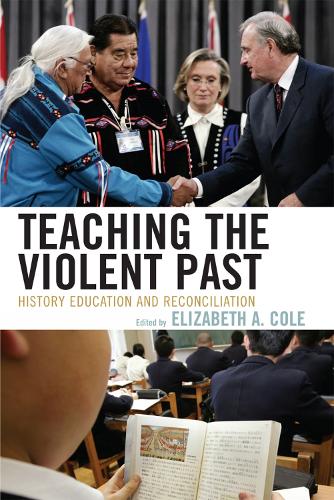
Teaching the Violent Past: History Education and Reconciliation
(Paperback)
Publishing Details
Teaching the Violent Past: History Education and Reconciliation
By (Author) Elizabeth A. Cole
Contributions by Julian Dierkes
Contributions by Takashi Yoshida
Contributions by Penney Clark
Contributions by Alison Kitson
Contributions by Rafael Valls
Contributions by Elizabeth Oglesby
Contributions by Thomas Sherlock
Contributions by Roland Bleiker
Contributions by Young-ju Hoang
Bloomsbury Publishing PLC
Rowman & Littlefield Publishers
4th October 2007
United States
Classifications
Tertiary Education
Non Fiction
History: theory and methods
303.6071
Physical Properties
Paperback
376
Width 155mm, Height 228mm, Spine 27mm
535g
Description
During an armed conflict or period of gross human rights violations, the first priority is a cessation of violence. For the cease-fire to be more than a lull in hostilities and atrocities, however, it must be accompanied by a plan for political transition and social reconstruction. Essential to this long-term reconciliation process is education reform that teaches future generations information repressed under dictatorial regimes and offers new representations of former enemies. In Teaching the Violent Past, Cole has gathered nine case studies exploring the use of history education to promote tolerance, inclusiveness, and critical thinking in nations around the world.
Online Book Companion is available at: http://www.cceia.org/resources/for_educators_and_students/teaching_the_violent_past/index.html
Reviews
Can high school history texts "facilitate nonviolent coexistence among people divided by the memory of pain and death" These case studies from ten countries are rich in hopeful, cautious, mixed answers. High school history teachers should take courage from this book, for theirs is a mission not often publicly celebrated: their part in the healing of the wounds in our body politic. No country should boast that it has no such wounds. -- Donald W. Shriver, Jr., President Emeritus, Union Theological Seminary, and author of Honest Patriots: Loving A Country Enough to Remember Its Misdeeds
This outstanding new book provides the kind of concrete empirical detail so lacking in studies of political ethics. The authors reveal the role of history education as a means of supporting reconciliation and, importantly, undermining it. Cole's introductory essay locates the project in the multiple discourses to which this book will contribute, giving the volume conceptual and analytical coherence. Anyone interested in reconciliation, conflict resolution, and the relationship of politics to history education should own this book. -- Anthony F. Lang Jr., University of St. Andrews
For anyone interested in transitional justice, national reconstruction after mass violence, or multicultural politics, Teaching the Violent Past is a source of insight and wisdom, grounded in compelling case studies of the struggles over teaching history in Germany, Japan, Canada, Spain, Northern Ireland, and Guatemala. It includes probing chapters examining ongoing debates over how Russia, North and South Korea, India and Pakistan should teach their young about the past so that neither national pride nor psychic wounds ends up fueling new violent conflicts. This book offers vital examples of efforts to engage students in critical confrontations with the complexity of the past. -- Martha Minow, Harvard Law School and author of Between Vengeance and Forgiveness: Facing History After Genocide and Mass Violence
History educators, teacher educators, curriculum designers, textbook writers, and scholars of conflict and peace studies will benefit from these nine scholarly articles....Recommended. * Choice Reviews *
Cole provides an indispensable set of readings for anyone interested in learning how teaching history in the schools relates to healing after violence. Through their gathered chapters, the authors show how any nation's future relates to what the next generation learns about its past. Cole's collection offers a powerful synthesis of multi-national points of view, which, taken together, show how schools can reshape collective national identities and influence reconciliation. -- Sarah Freedman, University of California at Berkeley
Author Bio
Elizabeth Cole is Assistant Director, TeachAsia, in the Education Division of Asia Society in New York City. She was Senior Program Officer at the Carnegie Council for Ethics in International Affairs from 2000-2005.
